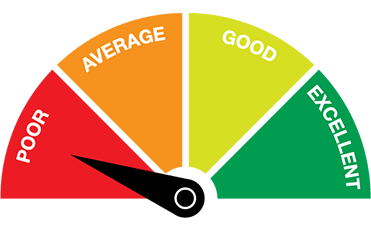
Negative global credit ratings can have significant implications for Kenya’s economy and financial stability. Credit ratings are assessments provided by international rating agencies like Standard & Poor’s, Moody’s, and Fitch, which evaluate a country’s ability to meet its debt obligations. Ratings are usually given as a letter grade, such as AAA (highest) to D (default).
When Kenya receives a negative global credit rating, it indicates that the rating agency believes the country’s creditworthiness has deteriorated, making it riskier for investors and creditors. Here are some potential consequences of a negative credit rating for Kenya:
- Higher borrowing costs: A negative credit rating implies that Kenya may have difficulty repaying its debts, which makes investors demand higher interest rates when lending money to the country. As a result, the government and businesses in Kenya may face higher borrowing costs, making it more expensive to fund public projects and business expansions.
- Reduced foreign investment: Negative credit ratings can erode investor confidence in a country’s economy. As a consequence, foreign investors may become hesitant to invest in Kenyan businesses or infrastructure projects. Reduced foreign investment can slow down economic growth and development.
- Currency depreciation: A negative credit rating can put pressure on Kenya’s currency, leading to depreciation against major currencies like the US dollar or the euro. This can increase the cost of imports, leading to higher inflation and reduced purchasing power for citizens.
- Capital flight: Investors may withdraw their investments from Kenya due to concerns about the country’s financial stability, leading to capital flight. This could further weaken the economy and financial markets.
- Downward spiral: A negative credit rating can lead to a negative feedback loop. Higher borrowing costs and reduced foreign investment can hinder economic growth and potentially lead to fiscal deficits. These challenges may further exacerbate the negative credit rating, creating a cycle of worsening economic conditions.
- Impact on development projects: Kenya may find it challenging to finance crucial development projects, such as infrastructure improvements and social programs, due to higher borrowing costs and limited access to international financing.
To mitigate the impact of a negative credit rating, the Kenyan government would need to take measures to address the underlying economic issues that led to the rating downgrade. This could involve implementing fiscal reforms, improving governance, enhancing revenue generation, and promoting policies that boost economic growth and stability.